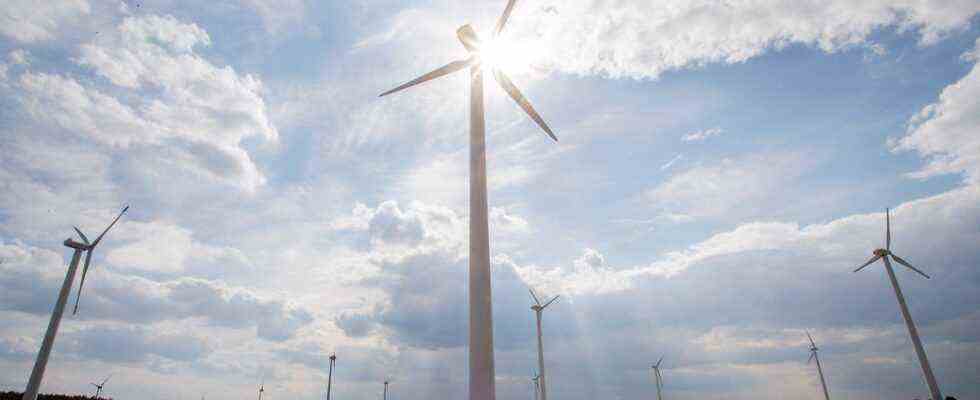Wednesday January 12, 2022
There are also “acceptance problems”
Söder: Topography prevents wind power in Bavaria
Bavaria’s Prime Minister Söder rejects the ambitious wind power expansion, at least for his state. There is not enough space there. Secretary General Blume goes one step further and declares a national distance rule to be non-negotiable.
Bavaria’s Prime Minister Markus Söder has refused to make two percent of the country’s area available for wind turbines. “In Bavaria, less areas are suitable for wind power, so that there would have to be a lot of wind turbines in a few areas,” he told the “Handelsblatt” in support of the reason. This is due to “the topography” in Bavaria, not a lack of political will.
“In Bavaria there are much less suitable areas for wind power than in northern Germany, for example,” argued the CSU boss. It is about an overall concept, “every federal state should play to its strengths”. In Bavaria it is more solar energy or hydropower. Söder admitted, however, that he also feared “acceptance problems” in the population when developing wind power, among other things in connection with nature and species protection.
Federal Minister of Economics and Climate Protection Robert Habeck had announced a massive expansion of renewable energies in Germany in order to be able to achieve the climate targets. Among other things, he announced that two percent of the country’s land area should be reserved for wind turbines. “Wherever distance rules are held in order to operate prevention planning, they can no longer exist,” said Habeck also.
Hardly any new wind turbines in Bavaria
Bavaria is the only federal state that has a so-called 10-H rule. This stipulates a distance of at least ten times the height of a wind turbine from the nearest residential area. Since this rule came into force, the expansion of wind power in Bavaria has practically come to a standstill. Söder did not directly address the problem of the 10-H rule in the interview.
CSU General Secretary Markus Blume made it clear on Twitter that the rule would not be shaken. Robert Habeck should instead take care of the necessary line expansion and the prevention of supply gaps, said Blume.
With a view to the two percent area target, Habeck had also emphasized that it was about the total value. So it is not a problem if federal states agree that 1.5 percent of the area will be made available in one state and 2.5 percent in another. Habeck had also made it clear, however, that all federal states would have to make their contribution and announced talks on this with the respective state governments. Habeck wants to defuse conflicts with species protection through new, standardized rules.

